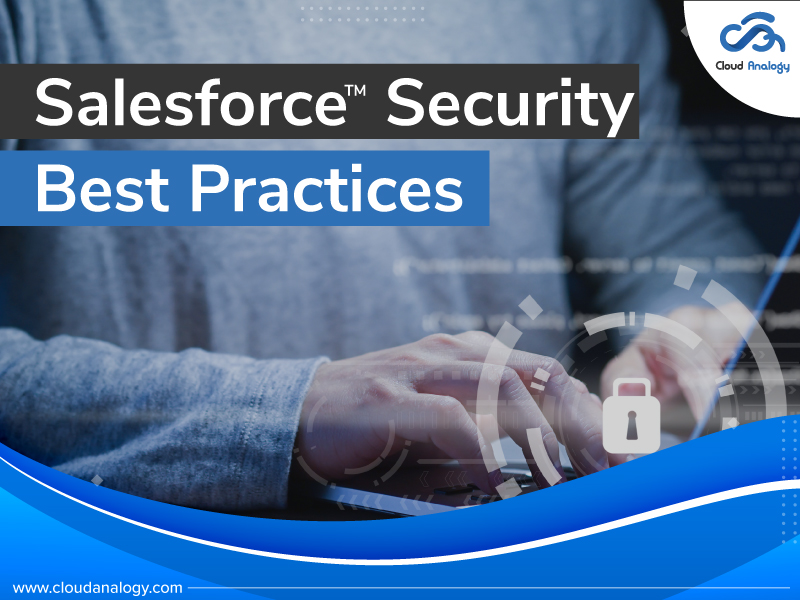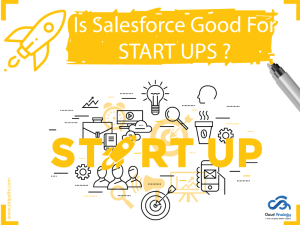Sharing is caring!
Salesforce data security is a multi-faceted effort. There are so many contrasting ways information can be manipulated and the work required to protect it is different. Salesforce has exploded in popularity over the last two decades. Customer relationship management (CRM) software, which ranks first, accounts for almost 20% of the market. Besides that, Salesforce is also a commonly used platform for development. Salesforce’s universality is due to the wealth of features that allow us to provide professional services to various industries. However, it does pose a well-accepted Salesforce security risk.
Implementing strong security to protect your business and customers is more important than ever. As threats to compromise users’ credentials have become common, usernames and passwords are no longer sufficient protection against unauthorized account access. So, Multi-Factor Authentication (or MFA) is Required. First, let us explore what MFA is?
Multi-Factor Authentication (or MFA)
Multi-Factor Authentication (or MFA) is a secure authentication method that requires the users to provide two or more factors while logging. It adds an extra layer of protection against common threats, such as account takeover, by enclosing your credentials in a phishing attack. Implementing MFA is one of the most effective ways for companies to increase the security of their Salesforce data. The following diagrams show Enable Multi-Factor Authentication.
Salesforce offers some free tools to manage the Salesforce organization’s security settings. Let us find out how?
Perform Security Standing Checks On All Releases Status Checks
Health Check may be a free tool that comes customary with Salesforce products. Engineered on a core platform, it permits administrators to manage the organization’s most significant security settings from one dashboard. Health checks enable admins to smoothly determine and fix the prospective vulnerable security settings with one click. Customers will produce custom baseline standards to satisfy the individual security needs of their business.
Salesforce expects customers to adopt the best practices to protect your Salesforce instance from compromise in an improved manner and align as per industry standards. So, we next will delve into the best practices of Salesforce Security.
What Are The Key Salesforce Security Best Practices?
While Salesforce is equipped with many out-of-the-box security controls, Salesforce Shield is complementary to your security features. It offers enhanced encryption, app and data monitoring, and security policy automation. Salesforce Shield can also help admins and developers build a new trust level and transparency in business-critical apps. Salesforce Shield helps to expand tracking. Organizations can track field history back to 10 years across custom objects like accounts, contacts, leads, cases and opportunities for 60 fields per object. Between Salesforce’s basic products and Salesforce Shield, the company offers many security features. However, it is up to you to get the most out of these built-in features. The following are the best practices that security professionals recommend:
- Select IP restrictions for user logins to minimize the risk of unauthorized access in case of account compromise.
- You can further reduce the risk of unauthorized access by selecting multi-factor authentication for all users.
- Limit sharing rules across your organization by allowing general business functions. Extend access beyond organization-wide sharing rules with role hierarchies, sharing rules, permission settings, and more.
- A secure password with a combination of uppercase and lowercase letters, numbers, and symbols is required, and a minimum of 8 characters is required.
- Set the number of invalid login attempts to 3-5.
- Password Reset Enables the answer to hidden secrets.
- Force re-login on session timeout, but enable session timeout warning popup.
- Keep your session timeouts as low as possible without disturbing your Salesforce user base. Disable caching and autocomplete on the login page.
- Expire the passwords within 90 days after creating a user password.
- Enforces password recording so that the same password is not used until at least five new passwords have been used since the specified password was last used.
- Passwords must not contain the word “password”. If you are using platform encryption, periodically generate a new tenant password to generate a new encryption key.
- If you break the encryption key, make sure that all the data encrypted with that key was first decrypted. If you are using the old key, even if the old key was not stored and discarded, the latest key will re-encrypt the already encrypted data.
- Enable Clickjack Protection for the following:
- Customer Visualforce Page Standard Headers
- Customer Visualforce Page with headers
- disabled
- Settings and Unconfigured Salesforce Page
- Ensure the latest browser version on all devices that access Salesforce.
- Make sure you have the version, antimalware software, and operating system.
Conclusion
Salesforce universality is due to the wealth of features that allow us to provide professional services to various industries. However, it does pose a well-accepted Salesforce security risk. Salesforce offers some free tools to manage the Salesforce organization’s security settings. One free tool that comes with Salesforce products is Health Check. Salesforce offers many out-of-the-box security controls. Salesforce Shield, complimentary to the security features, builds a new trust level, transparency in business-critical apps, and expands tracking. The security experts suggest many security best practices like MFA, limit sharing rules, clickjack protection, etc.

Ajay Dubedi
CEO | Founder
Ajay Dubedi, the founder and CEO of Cloud Analogy, is a prominent Salesforce Sales, Service, and Marketing cloud Consultant with a rich expertise in handling challenging business models. Ajay has assisted and implemented solutions in industries comprising Banking, Health Care, Networking, Education, Telecommunication and Manufacturing. Ajay is globally acclaimed for his extensive experience in APEX Programming, VisualForce pages, Triggers, Workflows, Page Layouts, Roles, Profiles, Reports & Dashboards.Hire the best Salesforce Implementation Partner. Choose Cloud Analogy, the world's most preferred Salesforce Implementation Company that provides custom CRM Implementation services.










